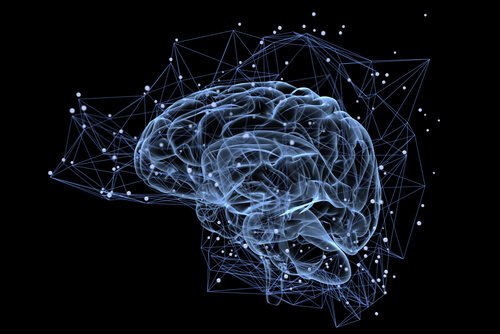What Five Minutes of Silence Can Do For Your Brain


Written and verified by the psychologist Valeria Sabater
Sometimes five minutes of silence is enough to recover your calm, balance, and peace. Just a brief moment away from the noise and the endless conversations and suddenly our brain starts to work on another level. Thus, as various studies reveal, human beings also need silence to create new connections and brain cells.
The topic is undoubtedly very interesting. Everyone, somehow, knows that enjoying a moment of chosen silence is an act of great therapeutic power. We say “chosen” because different experiments have demonstrated that when humans are subjected to complete isolation and silence for days or weeks, there will be adverse effects.
We are social people and we need interaction and environments full of stimuli to live and grow. Now, just as we need those experiences full of dialogue, music, and sociability, our brain also craves its moments of silence. This is not a whim; it is a physiological principal, like eating or sleeping.
In fact, we could say almost certainly that silence should be a part of one of the most basic levels on Maslow’s hierarchy of needs.

Five minutes of silence and your brain changes
Really, only five minutes of silence can have that many benefits? The reality is yes, and we don’t just say that lightly. A study published in the journal “Brain, Structure and Function” reveals this fact. The neuroscience of quiet in the age of noise is attaining more and more weight and relevance to the point that tourism is oriented to facilitate contact with this dimension.
The famous “silence retreats” are already a part of tourist packages in countries such as Finland and other places with suitable environments for us to completely embrace the quiet. However, we should apply some logic before getting carried away with ideas of vacationing. It is not actually necessary to travel across the world to attain some peace for our brains.
Silence helps us to develop new brain cells
We live in a world saturated with noise. Television, our favorite artists playing through our headphones as we walk down the street, traffic, conversations, background music in stores and supermarkets… we live in cities where silence does not exist, where sound is a part of life and consumes us.
Now, if we were able to enjoy five minutes of complete silence per day, several things would happen. One is that new cells would develop in the hippocampus. This brain area is related to our memory and our emotions. The second thing that would happen is that these cells would allow us to think more clearly and to connect better to our environment and ourselves.

Improves our sensitivity and empathy
This fact is interesting. There are many areas of the brain that are associated with sensitivity and empathy, as we already know. One of these areas is the right superior colliculus. It has been observed that when this area is damaged our empathy is reduced.In addition, we become slower when making decisions and show less interest in what is around us.
Enjoying moments of peace or allowing just five minutes of silence each day improves the functionality of the right superior colliculus. Consequently, silence enhances our brain’s ability to feel empathy and become more excited.
Less stress, better decisions
When our environment has excessive noise, the amygdala becomes active. This small structure is like our protector from danger and threats, interpreting the risks around us and those that we must flee. As striking as it may seem, loud noises or the sound of traffic are annoying for this area of the brain. These noises create a defense signal, which generates a stress response by stimulating the release of cortisol.
Now, it’s easy to see why we should have five minutes of silence. As a study published in the American Psychological Association reveals, silence is not only an excellent way to reduce stress, but it also releases serotonin, endorphins, oxytocin…
Furthermore, a few moments of silence improves our sense of well-being. We become more confident in the way we perceive ourselves and we become more focused when making decisions. We also cannot ignore silence and its positive effect on our cognitive processes.
Silence strengthens our memory, focuses our attention better, allows us to process information more quickly, and makes us feel that our conscience is “awakened”. We feel more connected to the present and prepared for what it can bring us.

In conclusion, as Friedrich Nietzche said, “The road to all great things goes through silence”. Let us therefore walk through it more frequently. Let us learn to turn off the button of our noisy outer world from time to time in order to have a needed walk through our silent inner universes. When we leave them, we will no longer be the same.
This text is provided for informational purposes only and does not replace consultation with a professional. If in doubt, consult your specialist.








